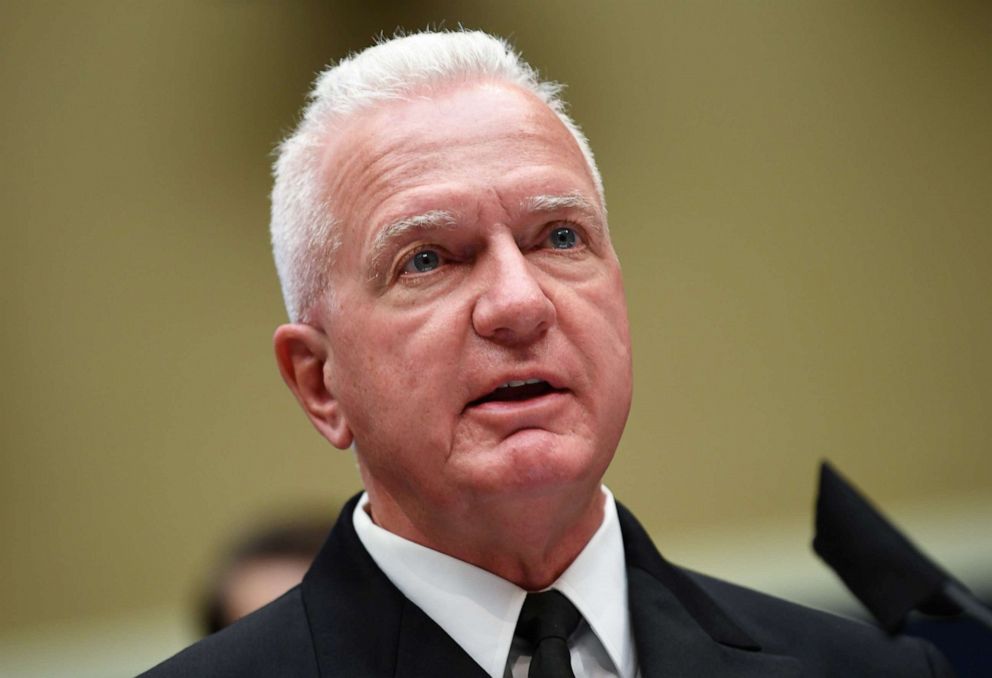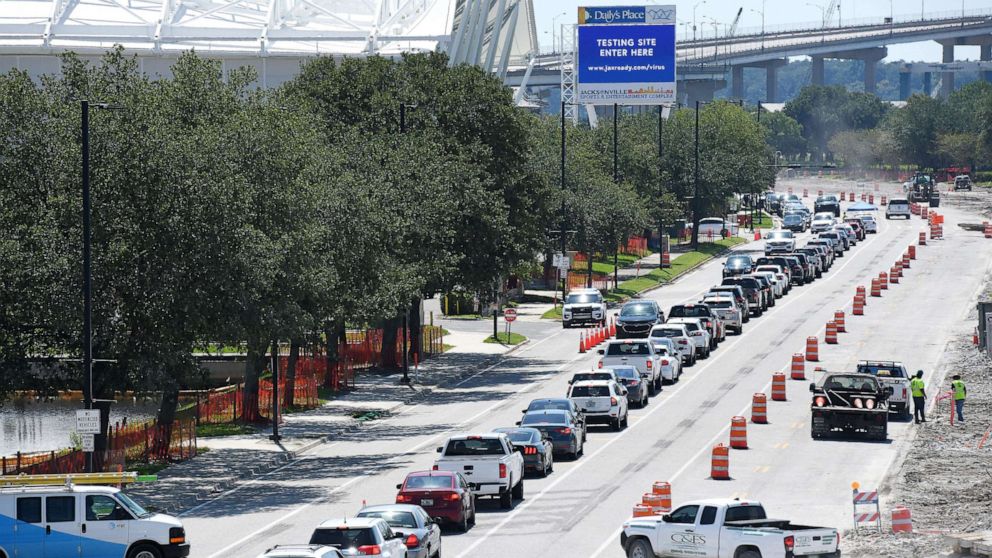Trump admin. to flood Jacksonville with free testing ahead of GOP convention
The Trump administration has picked Jacksonville, Florida -- the site of the planned GOP convention -- as one of three cities in the country where it will set up free "surge testing" sites to try to catch people who are infected with the virus but aren’t showing symptoms.
The idea behind the experimental push is to create pop-up sites to test some 5,000 people a day for five to 12 days in one area -- a kind of turbo-charged testing effort that would expose how widespread the virus is in that community.
The decision to pick Jacksonville would help health officials determine if a mid-sized community -- deemed moderately high risk but not necessarily ground zero of an outbreak -- can keep the virus at bay by flooding its residents with testing. But the location pick also could help President Donald Trump determine how widespread the virus already is before advancing plans for the convention.
Trump’s speech to accept the Republican nomination, slated for August, comes as virus case numbers in Florida across the state have doubled in recent weeks, and health officials have warned against large gatherings.
Trump said Tuesday it wasn't a done deal.
"When we signed a few weeks ago, it looked good," he said in an interview with "Full Court Press with Greta Van Susteren," according to a transcript. "And now all of a sudden it's spiking up a little bit and that's going to go down. It really depends on the timing. Look, we're very flexible. We can do a lot of things, but we're very flexible."
Adm. Brett Giroir, an assistant secretary of Health who coordinates testing efforts, announced the decision in a phone call with reporters on Tuesday, but insisted that the political importance of the site never occurred to him.
Jacksonville was picked along with two other cities -- Edinburg, Texas, and Baton Rouge, Louisiana -- because they fit certain criteria, he said.
"I'm going to show you about my political knowledge: I had no idea that the Republican convention was even in Jacksonville, until I called the state health officer and we started talking about that and he called me. So that shows you where my mind is," Giroir said.
"But if you look at all the criteria, Jacksonville really meets those," he added.

"It makes no difference to me and I'm sure to Dr. (Deborah) Birx what's going on in any town" politically, Giroir said. "It just met the public health criteria."
Giroir said Jacksonville and the other communities were not picked because they had the highest percentage of people who were sick. Instead, he said, they were medium-sized communities that had seen evidence of community spread and had the existing infrastructure to test the concept of testing thousands of people in a short timespan.
"We want to make sure that we can get this right and do it with the appropriate turnaround, and that it makes a difference in those places," he said.
Giroir said testing at these surge sites might still take three to five days before a person gets a result.
The move comes as testing capacity has been strained with cases surging in Texas, Florida and Arizona. Giroir said the wait times have generally been kept to a few days. Montana and Washington, DC. have the longest turnaround for testing results -- between four and five days, he said. Another 24 states report results in three to four days, and the rest of the states are between two and three days, he said.
The new federal testing sites include First Coast High School in Jacksonville, as well as the Regency Mall and Frank A Peterson Academy.
Florida and Texas were particularly aggressive in reopening efforts this spring, compared with other states. The result has been a crush of new cases that has already strained local hospitals and has prompted local officials in those states to roll back reopenings.
Birx, the White House coordinator for coronavirus, blamed some the southern region for reopening too quickly. In an interview Tuesday with SiriusXM’s "Wharton Business Daily," she said they should have stuck closer to the criteria outlined by the White House this spring that allowed certain businesses to reopen only if community spread was flat or declining.
"When they opened, instead of gating closely through all of the recommended gates, a lot of individuals and a lot of businesses instead of driving 25 in a 25 mile an hour zone, stepped on the gas and started going 65," she said. "And it's really evident now in the spread of cases across most age groups."
Giroir has said repeatedly that the states can't tackle the crisis through testing only. He and other health officials say the most critical tool in fighting the virus is social distancing and wearing masks.
ABC News' Benjamin Gittleson contributed to this report.




